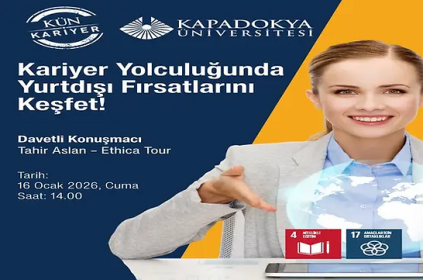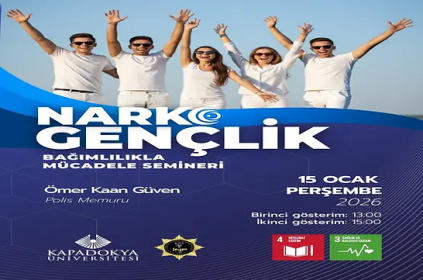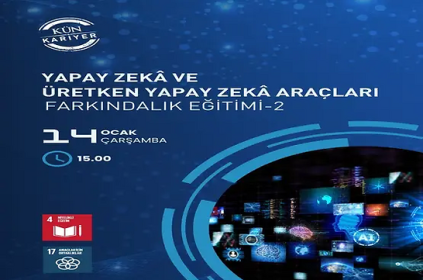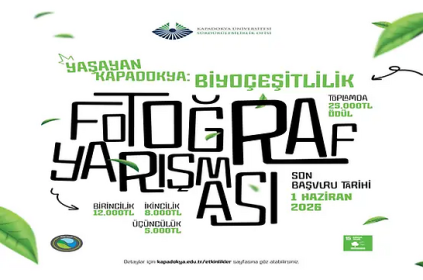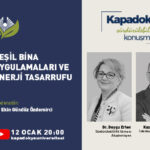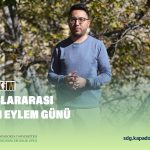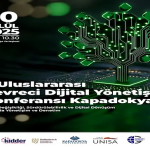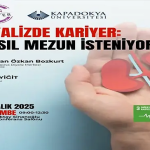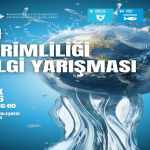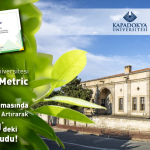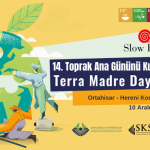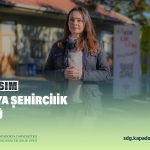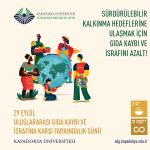The conference titled “Living in the End Times: Utopian and Dystopian Representations of Pandemics in Fiction, Film and Culture”, organized by our university, began on Wednesday, January 13, with broad participation from 207 speakers representing 42 countries and 18 different time zones.
In her opening speech, our Board of Trustees President Alev Alatlı drew attention to the absence of snow in January in the Cappadocia region, nestled at the foot of Mount Erciyes, and to the ongoing drought in Anatolia, stating that the conference’s title and purpose aptly reflect our current reality. In this context, she emphasized the growing importance of environmental humanities and thanked Prof. Dr. Serpil Oppermann, Director of Kapadokya University’s Center for Environmental Humanities, as well as Dr. Sinan Akıllı and Dr. Emrah Atasoy from the conference organizing committee. Alatlı, who introduced Turkish readers to dystopian fiction through her Schrödinger’s Cat novels, likened today’s global politics to physicist Schrödinger’s experiment, pointing out how political experimentation has unjustly victimized specific disadvantaged communities. She remarked that we live in a post-truth era, where distinguishing right from wrong has become increasingly complex.
Our Rector, Prof. Dr. Hasan Ali Karasar, addressing the conference’s themes, stressed that instead of merely complaining about the world’s current state, we must actively combat poverty, lack of education, planetary destruction, water pollution, pandemics, and discrimination. Referencing UN Secretary-General António Guterres’ statement that humanity’s actions against the planet amount to “suicide”, as well as the UNDP’s 2020 Human Development Report, which highlighted that the COVID-19 pandemic is a consequence of the Anthropocene era, he noted that we are living in a pandemic-induced dystopian world. He expressed hope that such a conference would raise awareness to understand these and other global crises better.
Prof. Dr. Serpil Oppermann, Director of the Center for Environmental Humanities, emphasized that the climate crisis of our time is a direct result of human actions and that the ongoing ecological collapse has transformed into an eco-dystopian reality. Oppermann stressed that the solution to halting planetary destruction lies in humanity’s hands and that conferences like this are invaluable in fostering this realization.
Dr. Sinan Akıllı, Vice Dean of the Faculty of Humanities and Chair of the Department of English Language and Literature, highlighted how participants from 18 different time zones disregarded time differences, noting that the current pandemic has frozen time and reminded us that the past, present, and future are interconnected.
Prominent Literary Figures Participate as Invited Speakers
Prof. Dr. Elizabeth Outka from the University of Richmond, a leading literary scholar, discussed the reflections of the 1918-1919 Spanish flu, which had devastating global effects, in Western literature.
World-renowned science fiction author Kim Stanley Robinson, known for works such as “Red Mars,” “Lucky Strike,” and “2312,” participated as an invited speaker, drawing attention to the real-life inspirations behind fantasy and sci-fi literature, ranging from vampire tales to space travel. Robinson expressed his pleasure in joining the conference and praised it as a highly successful event.
Mezzo-soprano Natali Boghossian and pianist Hans van Beelen joined from the Netherlands, delivering an online concert.
The “Living in the End Times” conference sessions will continue until Friday evening, January 15.
You can watch the conference via the link below.


